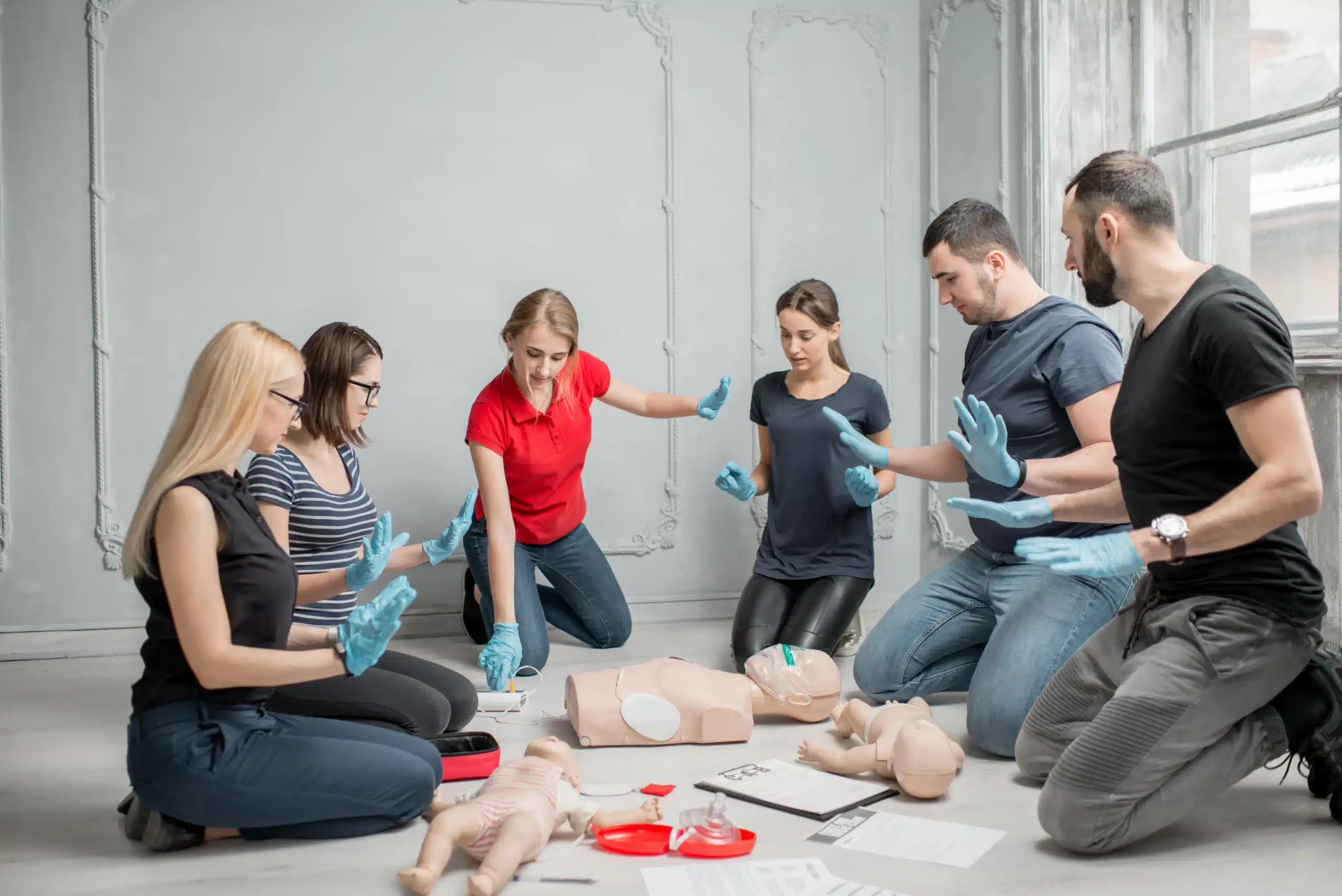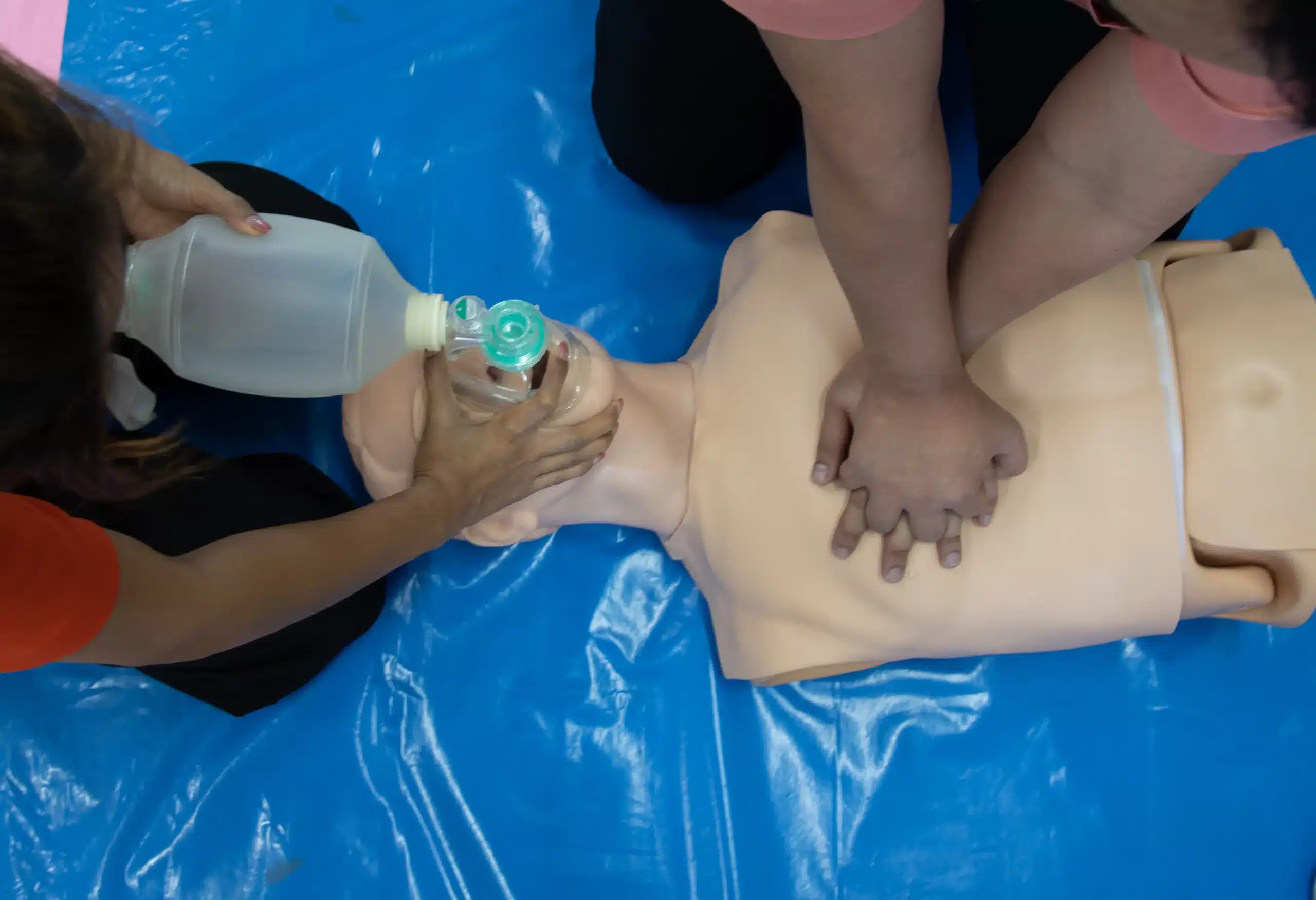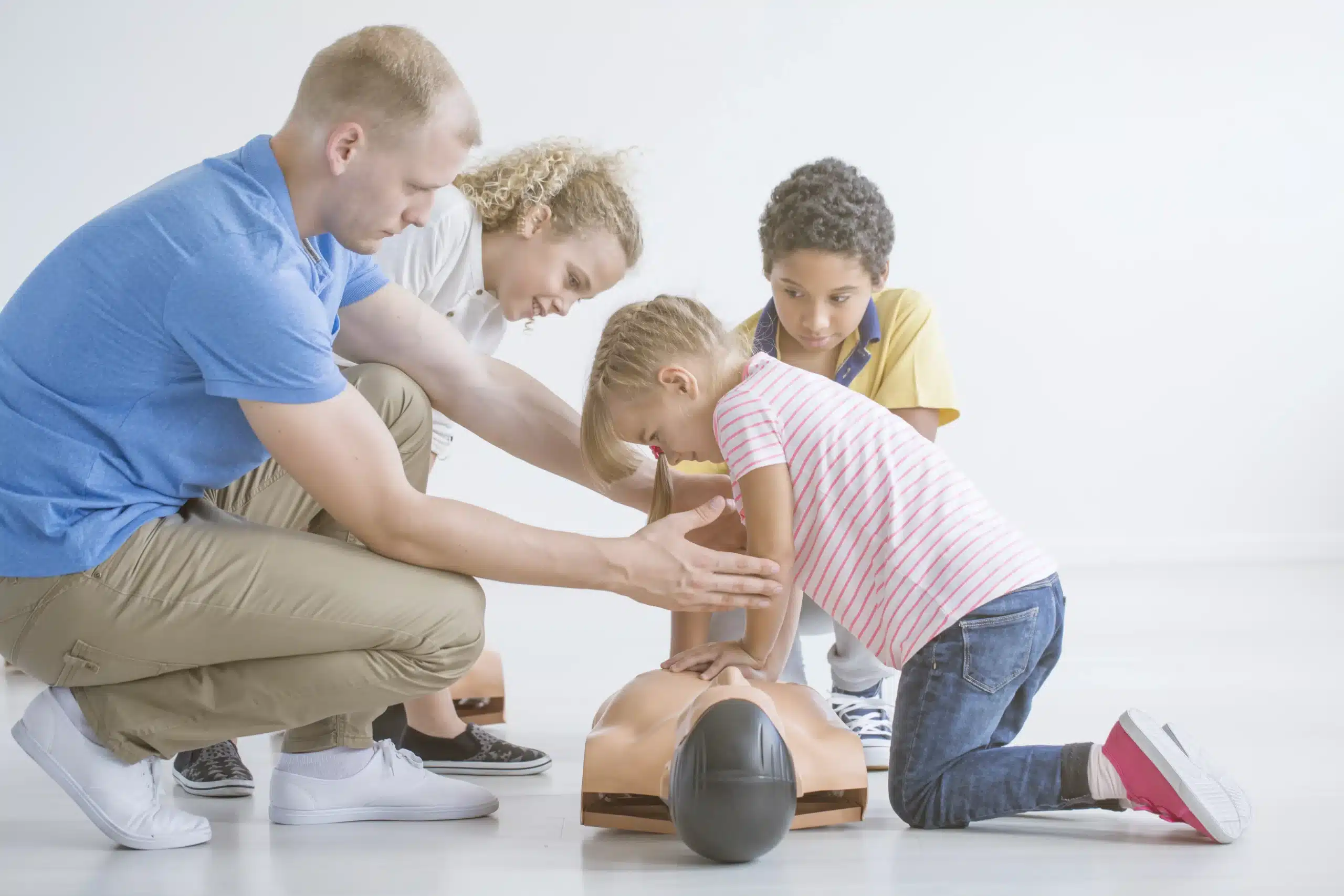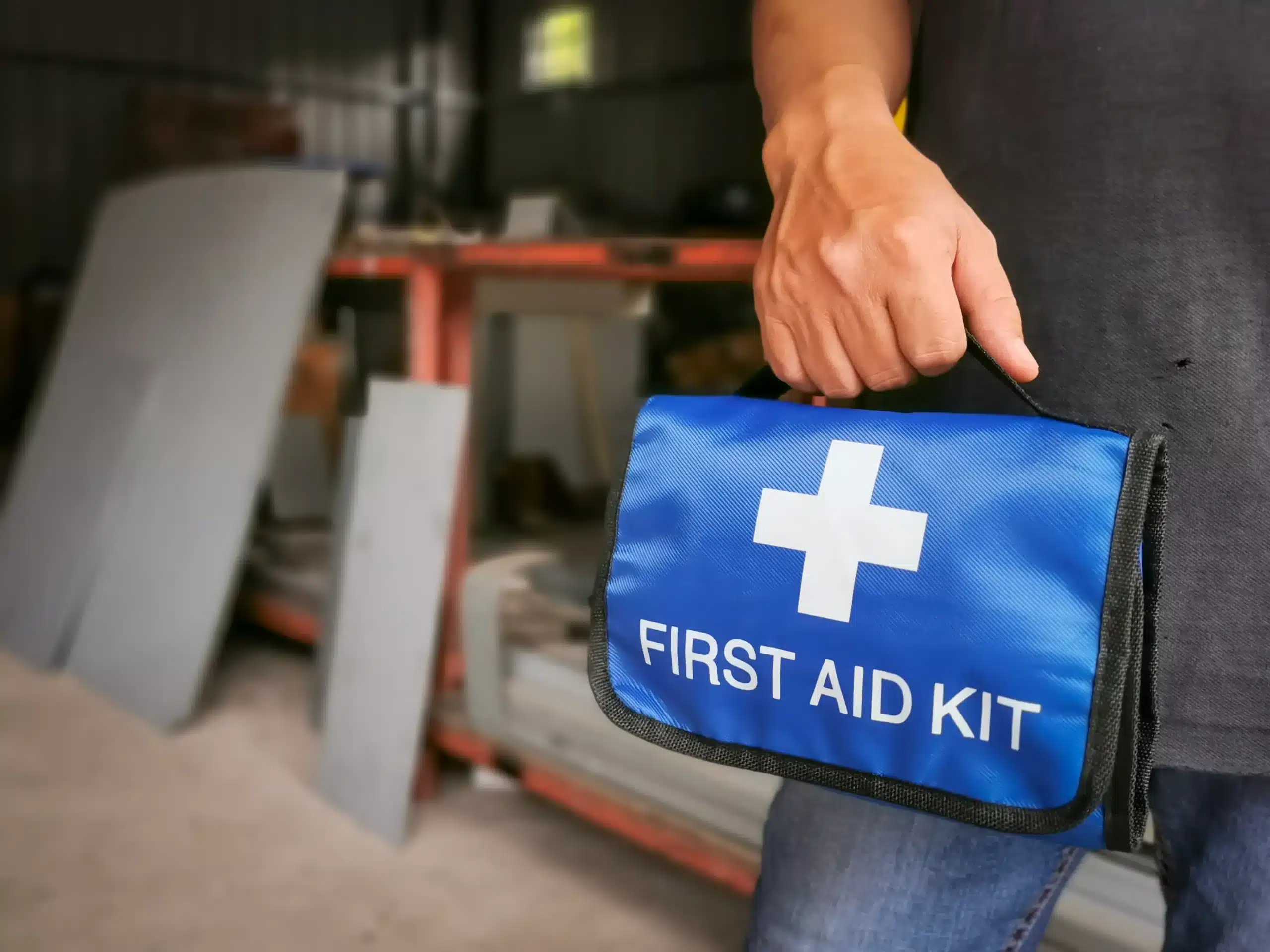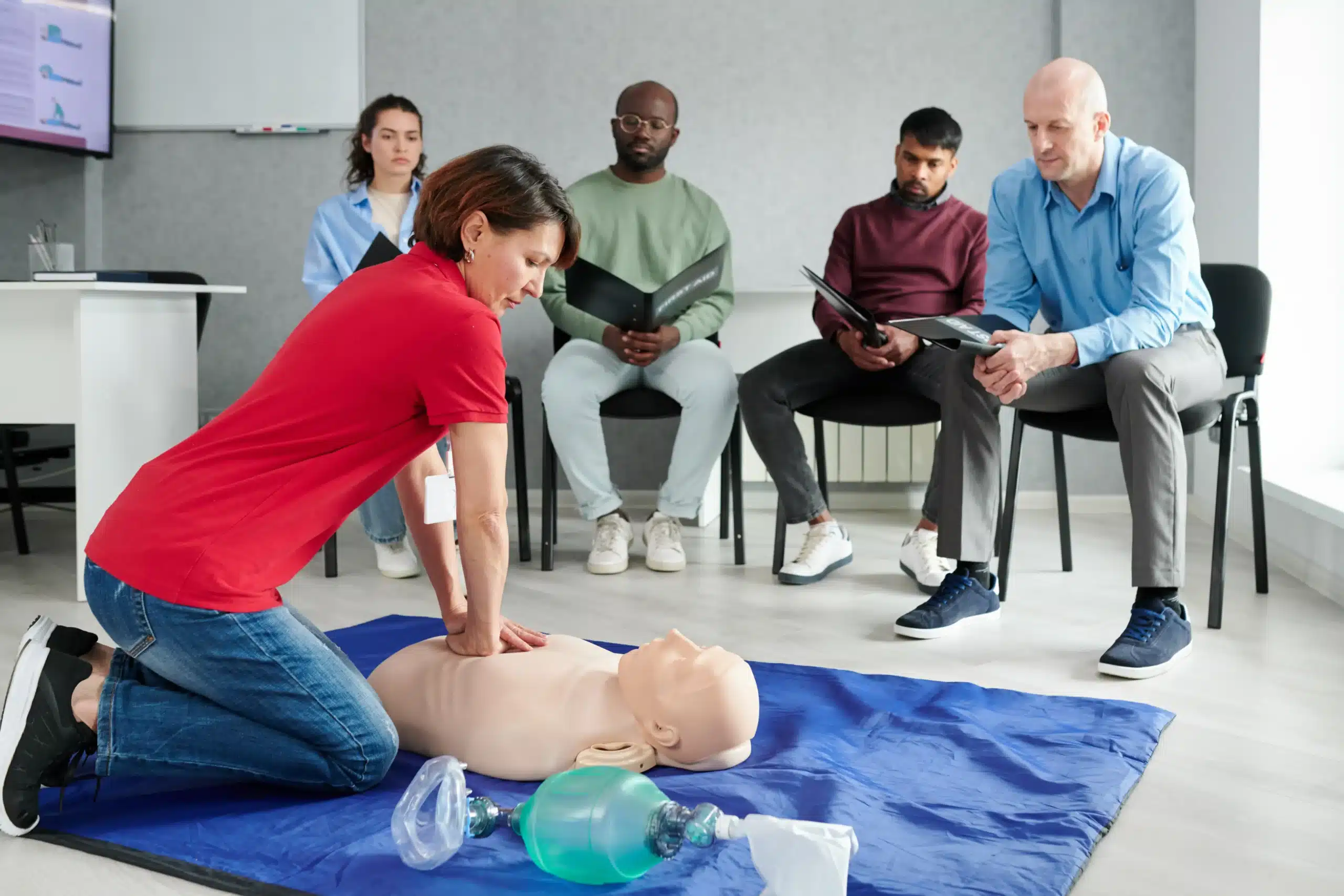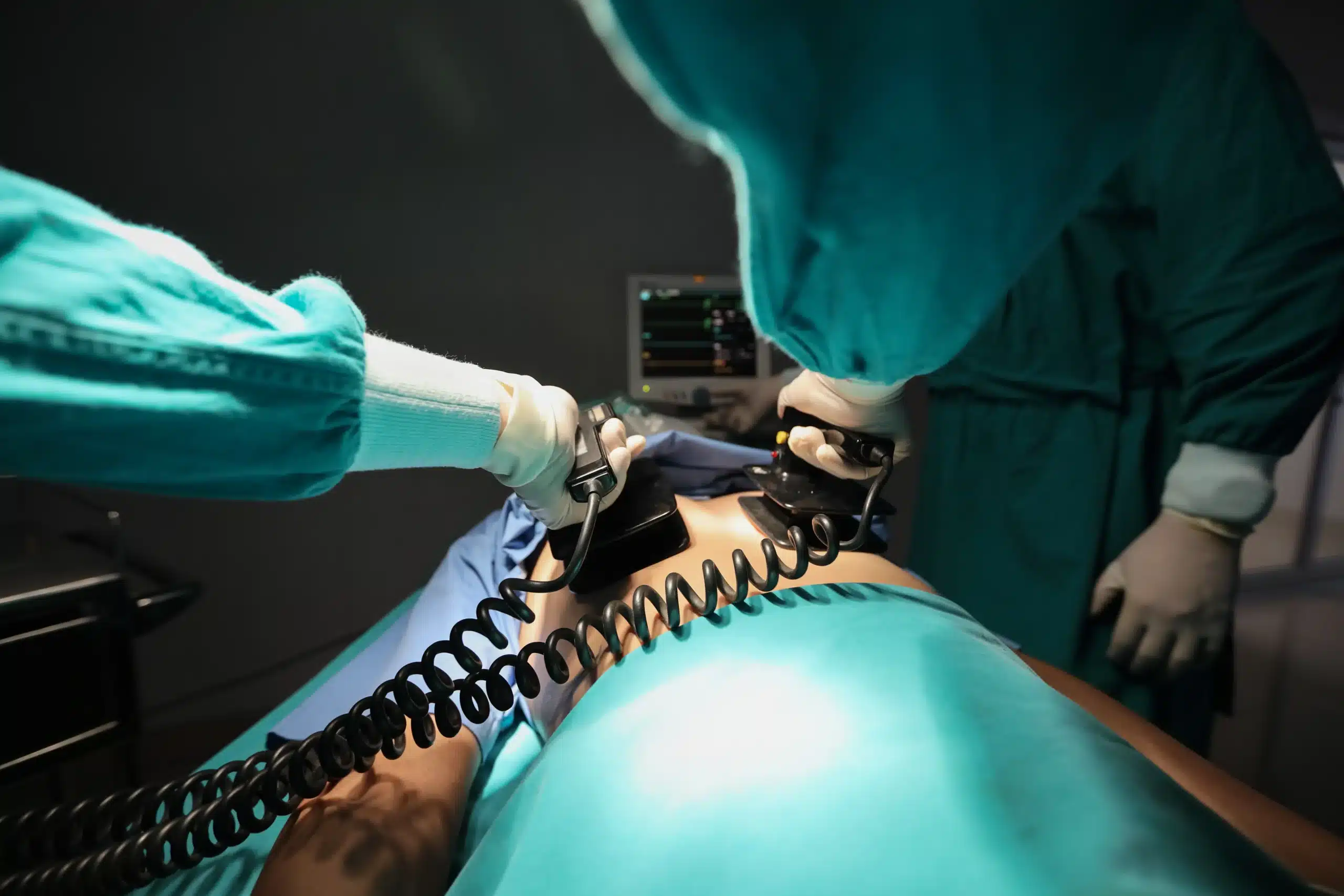Working in healthcare often means facing unexpected challenges, and when those challenges involve a child’s well-being, having the right skills can make all the difference. Pediatric Advanced Life Support (PALS) certification empowers healthcare providers to respond confidently and effectively to pediatric emergencies. This specialized training goes beyond basic life support, equipping you with the knowledge and techniques to handle critical situations involving infants and children. Whether you’re a seasoned professional or just starting your healthcare career, understanding the importance of PALS certification and finding the right “PALS certification courses near me” can be a game-changer. This article will guide you through everything you need to know about PALS certification, from course content and available formats to finding the perfect training program in your area.
Key Takeaways
- PALS certification equips healthcare providers with essential skills: This specialized training empowers professionals to confidently manage pediatric emergencies, going beyond basic life support with advanced techniques tailored to young patients.
- Choose a PALS course format that suits your needs: With options ranging from in-person classes to online and blended learning, you can find a format that accommodates your schedule and preferred learning style. Consider factors like cost, location, and provider reputation when making your decision.
- Maintaining your PALS certification is an ongoing commitment: Regularly practicing your skills and completing recertification courses ensures you stay up-to-date with the latest guidelines and maintain your proficiency in providing critical care to infants and children.
What is PALS Certification?
Pediatric Advanced Life Support (PALS) certification is a specialized program designed to equip healthcare providers with the skills to respond to medical emergencies in infants and children. This training gives professionals the knowledge and confidence to effectively manage pediatric emergencies, from assessment and stabilization to life-saving interventions. PALS courses cover a wide range of topics, including respiratory distress, cardiac arrest, shock, and other critical situations. The curriculum emphasizes age-specific considerations, ensuring participants understand the unique aspects of pediatric anatomy and physiology. This specialized training focuses on providing appropriate interventions tailored for young patients. PALS certification emphasizes a systematic approach to pediatric assessment, helping providers quickly identify and address life-threatening conditions. It also stresses the importance of teamwork and communication in emergencies, promoting effective collaboration among healthcare professionals. Through hands-on practice and simulations, PALS training reinforces essential skills and builds proficiency in managing pediatric emergencies.
Why is PALS Certification Important?
PALS certification equips healthcare providers with the skills to confidently manage pediatric emergencies. It’s crucial for anyone involved in pediatric care, giving them the tools to recognize and respond to life-threatening situations in children and infants. This specialized training covers a range of critical skills, from recognizing early signs of deterioration to providing advanced life support. Ultimately,
Beyond technical skills, PALS training instills confidence in providers. Knowing they have the training to handle pediatric emergencies allows them to react decisively under pressure. This specialized knowledge also fosters a deeper understanding of the unique needs of children in cardiovascular emergencies, making it an essential component of quality pediatric care. By obtaining PALS certification, healthcare professionals demonstrate their commitment to professional development and, most importantly, the safety of their young patients. This commitment translates to better outcomes for children facing critical health challenges.
Who Needs PALS Certification?
Pediatric Advanced Life Support (PALS) certification is essential for healthcare providers working with children. It equips professionals with the skills to respond to pediatric emergencies. PALS is designed for those treating critically ill or injured infants and children, especially in hospitals and emergency medical services. Think doctors, nurses, paramedics, and respiratory therapists—anyone who might be the first line of defense in a pediatric crisis. While basic life support (BLS) certification provides foundational life-saving skills, PALS certification goes further with specialized techniques for pediatric care. It’s crucial for anyone responsible for young patients’ well-being.
How to Find PALS Certification Near You
Finding the right PALS certification course takes a little research, but it’s worth it to ensure the course fits your needs and schedule. Here’s how to find a PALS course near you and what to consider when choosing a provider.
Top PALS Certification Providers
Sunnyvale CPR Classes
If you’re in Sunnyvale, Santa Clara, or San Jose, California, Sunnyvale CPR Classes offers convenient and affordable PALS certification. They prioritize high-quality training and flexible scheduling. Visit their website for course information and pricing.
American Heart Association
The American Heart Association (AHA) is a leader in PALS certification. Their courses are known for their comprehensive curriculum and evidence-based practices. You can find AHA-certified training centers on their website. AHA’s PALS courses are designed for healthcare providers managing pediatric emergencies.
American Red Cross
The American Red Cross also offers PALS certification courses with a focus on scientific rigor and high-quality training. Visit their site to find a class in your area.
Local Hospitals and Medical Centers
Many hospitals and medical centers offer PALS training tailored to their specific equipment and procedures. Contact your local hospitals or check their websites for course information. This is often a convenient option for healthcare professionals already working in those facilities.
Community Colleges and Universities
Community colleges and universities frequently offer PALS certification within their healthcare programs. These institutions often have flexible schedules and various learning formats, including online and in-person options. Check with your local colleges to explore their offerings. This can be a good resource for initial certification or recertification.
PALS Course Formats
PALS courses come in several formats to suit different learning styles and schedules. Let’s explore the three main options: in-person, online, and blended learning.
In-Person PALS Courses
In-person PALS courses offer hands-on learning and direct interaction with instructors and peers. These courses emphasize simulations and real-life scenarios, building confidence for real emergencies. The dynamic classroom environment fosters teamwork and provides immediate feedback. This format is great for people who prefer traditional learning and value face-to-face instruction. PALS certification is crucial for healthcare providers involved in pediatric care.
Online PALS Courses
Online PALS courses offer flexibility and convenience. The self-paced structure lets healthcare providers complete the coursework when it suits them. Online courses often include interactive modules and simulations for a comprehensive learning experience. This format is especially helpful for those who prefer independent study or have limited access to in-person training. PALS certification significantly improves providers’ skills in managing pediatric emergencies.
Blended Learning PALS Courses
Blended learning combines online learning with hands-on practice. Students typically complete online modules covering the theory, followed by an in-person skills session with an instructor. This approach allows students to learn at their own pace and then demonstrate their skills, ensuring they gain both theoretical knowledge and practical experience. Blended learning offers a balance of flexibility and hands-on training.
PALS Course Content and Duration
This section covers what you’ll learn in a Pediatric Advanced Life Support (PALS) course and how long it takes. Whether you’re a seasoned healthcare provider or just starting out, understanding the course content and time commitment will help you prepare.
What to Expect in a PALS Course
PALS certification equips healthcare professionals with the skills to manage pediatric emergencies. The curriculum focuses on evidence-based protocols for recognizing and treating life-threatening conditions in infants and children. You’ll learn systematic approaches to assessment, resuscitation, and stabilization. Beyond technical skills, PALS training builds confidence in managing these high-pressure situations. Expect a combination of lectures, demonstrations, and hands-on practice, including simulated scenarios. These simulations offer a safe environment to apply knowledge and gain experience before facing real-world emergencies.
Course Duration and Scheduling
A typical PALS certification course requires at least eight hours to complete. This timeframe may vary slightly depending on the course provider and format. The American Heart Association’s HeartCode PALS, which blends online learning with a hands-on skills session, typically requires around five hours for the in-person portion, including breaks. Real-life scenarios play a key role in PALS training, allowing you to practice your skills and build confidence in a controlled setting. When choosing a course, consider factors like scheduling flexibility, in-person versus online options, and the blend of instruction and hands-on practice. Check with providers like Sunnyvale CPR Classes for specific course schedules and formats.
PALS Certification Prerequisites and Preparation
Getting ready for your PALS certification involves a few key steps. This section covers the qualifications and how to best prepare for the course. At Safety Training Seminars, we want you to feel confident and ready to succeed.
Required Qualifications
Before you sign up for a Pediatric Advanced Life Support (PALS) course, make sure you meet the PALS class requirements. You’ll need a current Basic Life Support (BLS) certification for healthcare providers. PALS builds upon the foundational skills taught in BLS. Think of BLS as your base, with PALS as the next level. This prerequisite ensures you have the fundamental knowledge to handle pediatric emergencies. If your BLS certification is expiring, or if you need to get certified, check out our BLS course options.
Study Materials and Resources
Once you’ve confirmed your BLS certification, start preparing for the PALS course. Familiarizing yourself with the material ahead of time will make the course go much smoother. The American Heart Association (AHA) offers PALS resources to help you get started. These resources cover essential topics like treatment protocols, assessment techniques, and medication administration for pediatric emergencies. You can also find helpful information on what to expect from online PALS certification. We encourage you to review the PALS Course FAQs from the AHA. The more prepared you are, the more confident you’ll feel.
How Much Does PALS Certification Cost?
Getting PALS certified is an investment in your skills and ability to respond to pediatric emergencies. Naturally, you’ll want to know what to expect cost-wise. Let’s break down the typical price ranges and look at ways to make training more affordable.
PALS Certification Price Ranges
The cost of PALS certification varies depending on several factors. The training provider, course format (online or in-person), and whether you’re getting initially certified or recertifying all play a role. Generally, online PALS courses cost somewhere between $175 and $275. Recertification courses are usually less expensive, typically between $125 and $175. In-person training costs vary; some providers offer initial ACLS.com and eMedCert, is always recommended.
Group Discounts and Financial Assistance
If you need to train a team or group, look for providers that offer group discounts. Safety Training Seminars, for example, provides discounts for group PALS certification, significantly lowering the per-person cost. This can be a smart option for schools, community groups, or healthcare facilities training multiple staff members. Also, check with local providers or professional organizations about potential financial assistance or payment plans. These options can make training more accessible and manageable.
Choosing a PALS Course Provider
Finding the right PALS course provider is just as important as the certification itself. It can significantly impact your learning experience and how well you retain those life-saving skills. Here’s what to look for:
Key Factors to Consider
First, double-check that you meet the PALS class requirements, which typically include a current Basic Life Support (BLS) certification and a background in pediatric care. Beyond eligibility, think about practical aspects like cost, a convenient location near you in Sunnyvale, and a schedule that meshes with your life. Don’t underestimate the importance of the provider’s reputation—look for established providers with a track record of quality instruction. Safety Training Seminars is one example of a reputable provider in the Sunnyvale area. Finally, consider the time commitment involved. Balancing a demanding work schedule with PALS training can be tricky, so choose a course format and schedule that realistically fits your availability. This article offers insights into the challenges healthcare workers often face during PALS certification.
Reviews and Testimonials
Once you’ve narrowed down your options, take the time to read reviews and testimonials. Hearing from others who have completed the course can give you valuable insights into the quality of instruction, the course materials, and the overall learning experience. Look for providers like Safety Training Seminars that offer a comprehensive range of American Heart Association (AHA) certified courses, including PALS, along with options like group discounts. A solid PALS course should increase your confidence in managing pediatric emergencies, so look for reviews that mention improved practical skills and a deeper understanding of the material. This article on the benefits of PALS highlights the positive impact this training can have on healthcare providers. Choosing the right PALS course provider sets you up for success, ensuring you gain the skills and confidence to provide critical care when it matters most.
Maintaining Your PALS Certification
Earning your PALS certification is a significant achievement, but staying current with the latest pediatric life support techniques is equally important. This ongoing commitment not only maintains your skills but also ensures you’re prepared to provide the best possible care in an emergency. This section covers how to keep your PALS skills sharp and how to navigate the recertification process.
Using Your PALS Skills
PALS certification equips you with the skills to recognize and respond to life-threatening emergencies in children and infants. Regularly using these skills is key to maintaining proficiency. While real-world emergencies offer the most impactful experience, they are, unfortunately, unpredictable. Consider incorporating PALS skills into your daily work through simulations, case studies, and discussions with colleagues. This ongoing practice helps reinforce what you’ve learned and builds confidence in your abilities. For healthcare professionals working in pediatric settings, applying PALS principles becomes an integral part of providing effective care during critical situations.
Renewal Process and Continuing Education
Your PALS certification is typically valid for two years. To maintain an active certification, you’ll need to complete a PALS recertification course before it expires. The recertification process covers updates to guidelines and best practices in pediatric emergency care, ensuring you stay informed about the latest advancements in the field. Regularly participating in these courses not only fulfills the renewal requirements but also demonstrates your commitment to providing high-quality care. Staying up-to-date with PALS training enhances your confidence and competence in managing pediatric emergencies. This ongoing education is vital for maintaining both your skills and your confidence when facing critical situations. You can find more information on PALS recertification criteria and the benefits of ongoing training through resources like the American Heart Association.
Related Articles
- PALS HeartCode Sunnyvale: Your Certification Guide – Sunnyvale CPR Classes
- Online ACLS Classes in San Jose: Certification Guide – Sunnyvale CPR Classes
- BLS Certification Near Me: Your Complete Guide – Sunnyvale CPR Classes
- Pediatric CPR & First-Aid Classes in Sunnyvale – Sunnyvale CPR Classes
- ACLS Renewal Sunnyvale: Your Complete Guide – Sunnyvale CPR Classes
Frequently Asked Questions
What is the difference between BLS and PALS? BLS (Basic Life Support) teaches fundamental life-saving skills applicable to anyone, while PALS (Pediatric Advanced Life Support) builds upon those skills with specialized techniques for healthcare providers working with infants and children. PALS focuses on the specific needs of young patients in medical emergencies.
How long does a PALS certification last? PALS certification is typically valid for two years. You’ll need to complete a recertification course to stay current and maintain your credentials.
What if my BLS certification expires before my PALS certification? Since a current BLS certification is a prerequisite for PALS, you’ll need to renew your BLS before taking a PALS course or recertification. Many providers offer both BLS and PALS training, making it convenient to renew both certifications.
Are online PALS courses as effective as in-person courses? Both online and in-person PALS courses offer valuable training. Online courses provide flexibility, while in-person classes allow for direct interaction with instructors and hands-on practice. Blended learning combines the benefits of both formats. The best choice depends on your learning style and schedule.
How can I find a reputable PALS provider near me? Start by checking with organizations like the American Heart Association and the American Red Cross, which list certified training centers. Also, look for local hospitals, medical centers, and community colleges that offer PALS courses. Reading reviews and testimonials can help you choose a provider with a strong reputation for quality instruction.
